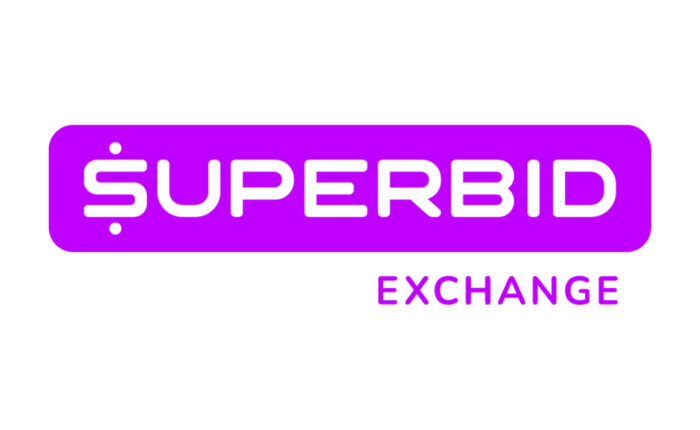Jumping on the digitization train is no longer an option for companies. This process implies not only a cultural change from the organizational point of view, but in many cases the modification of the business model. The question is about what this process that many have already started consists of, the situation in Argentina and the pending challenges.
In Argentina, 38% of companies have a high level of digitization, while in small companies this value is reduced to 14%. However, 84% of them believe that new technologies will change the business model of their market, so the same percentage plans to make investments in this area by 2017.
The data comes from the latest “Survey on the state and perspectives of digital transformation in Argentine companies”, which was prepared by the Chamber of the Argentine Software Industry (CESSI), and shows that in the country the digital transformation of companies and businesses is in full process and there is a long way to go.
Based on the Instituto de Desarrollo Comercial (IDC, Argentine Institute of Commercial Development) definition, digital transformation is an ongoing process through which companies adapt or implement disruptive changes in their organization, their customers and their market through the ability to replicate innovation in business models, products and services, to naturally unify the digital and physical components. In this process, the business model must change towards a model centered on the individual.
Being disruptive may sound like an advanced and even essential concept in order not to be displaced from the market, but it is not always a simple process to carry out.
“Digital transformation involves a cultural change within an organization. It is a cultural and leadership perspective of each company to lead and accompany changes that are transformative. That is necessarily a movement that has to be continuous and maturing”, commented Blas Briceño, member of the CESSI Board of Directors, to Ambito Biz.
The Sales Division VP of ExtendIT agrees that digital transformation consists of a mental and cultural change. For the specialist, it is the information that gives power to a company. “It is no longer a differential of some company with great resources, but rather any enterprise or company of any size needs the greatest amount of information available at the time required to make decisions,” he said.
Armed with this data, organizations can learn about their customers and competitors or reduce costs. “The job of digital transformation is to transform that data that comes from multiple sources, in different formats, and give it meaning. It means transforming data into information”, he pointed out. «Before, large systems departments were needed to make this transformation and today software is conceived as a service. This digital transformation also implies the possibility that companies now have to pay for services as we pay for Netflix or Spotify. They pay for services in the cloud, which let them have access to this information,” he added.
FIRST, MAKE A DECISION
Internet of Things, Big Data, innovation, moving to the cloud, are concepts that are repeated when talking about digitization. But how to start going through that process?
“What you need first is to have the decision and be prepared. Then, having the basic infrastructure, then the technological infrastructure is essential to gradually adopt computerization platforms in all areas of the organization”, explained Briceño.
For Mazzoni, “the first thing a company must have is the ability to adapt. The one that does not adapt does not survive and to adapt the essential thing is the information that is obtained through increasingly powerful and accessible tools of information technology, mainly software».
In this digitization process, companies are also beginning to modify their ways of linking up with some services and to adapt to some changes. «Companies no longer need to have their systems departments with many people, since today services are already being provided in an outsourced format. They also do not have their servers and information processing on site, but it is done externally”, said Mazzoni. “The transformation also implies handing over the administration of all this to specialists and dedicating oneself to consuming this information as a service to improve your business,” he said.
CHAT WITH A COW?
“The best way to see the benefits is to see the specific cases. We work with our local business partners who can be software developers, small, medium or large companies, and who take advantage of this technology to transform businesses”, explained Ezequiel Glinsky, director of New Technologies at Microsoft.
As an example, he tells how the global dairy application, which uses technology created by Microsoft and used today by more than 75,000 people in 150 countries, takes advantage of the cloud and the availability of devices to transform the dairy business from one person to another. India or five people in La Pampa.
“A lot of this transformation comes with intelligence added to existing applications as well,” Glinsky continued. “Given the reality that many of the people in the dairy business do not know how to handle technology very well, a chat system is being implemented, to be able to chat with the cow and check the performance or milk production. It sounds like science fiction but it’s working. It allows a dairy farmer instead of making a complex query, I asked a cow how she is, how her production is coming, when she has to be vaccinated, “he said.
“Today the cloud is the fundamental aspect, a powerful element that allows anyone, no matter where they are, to access computing power and storage,” he highlighted.
TO BE OR NOT TO BE DIGITAL
In Argentina, many organizations achieved the digitization process but the country still has a long way to go to approach the levels of other countries. According to Briceño, entrepreneurs are aware that their businesses must be transformed, but many do not know where to start.
Based on a study of digitalization in the country, carried out by gA, Grupo Assa, most of the digitalization was generated by the adoption of the individual consumer, while the contribution of digital technology to productivity was minimal. The same work stated that in Argentina, the average level of digitization is 46.41 points, but some sectors, such as Telecommunications, Transport and Logistics (57.7), Mass Consumption (51.9), Health and Science (63 ,1), have digitization indexes above the average. However, in the region, the country is below the levels of Chile (54.40) and Colombia (48.57).
“There are industries that have the capacity to assimilate transformation more quickly. In the Cámara de la Industria Argentina de Software (CESSI, Chamber of the Argentine Industry of Software) we elaborated the digitization index and we noticed that some industries have greater speed. They are those that have a more immediate proximity to technology, such as media, telecommunications or software, but there are others such as services, commercial and manufacturing, which with lower speeds are also advancing on the journey, “he emphasized.
“Transforming is inexorable,” emphasized Briceño. “A few years ago there were industries that one did not imagine would transform as they did. There are not many places left today where you are acting as a business and you don’t have a completely different set of technological tools at your disposal than you had 5 or 10 years ago,” he added. “If you don’t do it, surely there is someone, some disruptor who is taking advantage of transformation opportunities,” he said.
Along the same lines, Mazzoni said: «This is a wave that you do not choose to ride or not ride, you ride because if not, it will wear you». “The industry changed. The latest signs of resistance come from supports that are not very valid. For example, data security. Who is going to have more tools to protect your data against attacks, losses or some natural disaster, someone who is dedicated to something else such as core business, or Google, Amazon, Oracle, etc.?
“Argentine companies are extremely open to transformation. We are lucky to live in a country that encourages us to take these changes and take advantage of them,” said Glinsky. “Typically the entertainment industries, for example, are more open to this. But we see something interesting. We work a lot with smaller companies and entrepreneurs, which for Argentina is a very interesting ecosystem,” he said.
Those consulted agree on the role of the State as essential to carry out these changes.
“There is an infrastructure and connectivity issue to resolve. We have clients in Ushuaia, Comodoro Rivadavia and Mendoza, for instance, where we go with our cloud proposal for hypermodern applications, and connectivity problems arise”, said Glinsky and he stood up the financial sector: “It is the industry with the greatest number of contractual, legal and security issues and we see how banks and financial services companies in the United States are moving to the cloud. That is a very clear trend that means that digital transformation is happening.”




